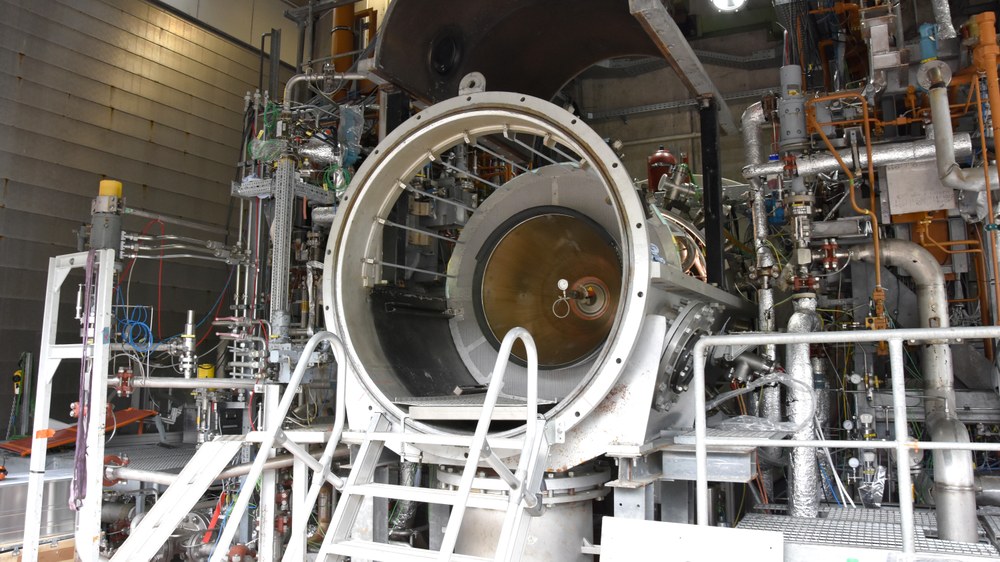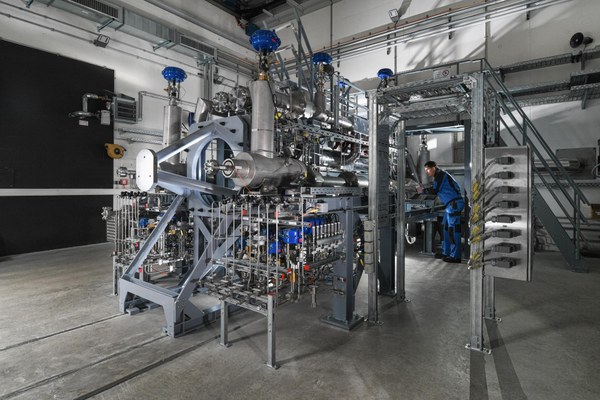ETID
The ETID engine was tested on June 14 at the P3.2 test stand at the DLR site in Lampoldshausen. Two days earlier, the engine was successfully ignited for the first time. In the test, the test engineers had determined the initial performance data of the engine model and compared these with the expected results from the model calculations. The ETID technologies are to be used for future improvements to the Vinci engine and the Ariane 6 upper stage. New manufacturing processes and optimized components will simultaneously increase the power density of the engine and reduce production costs.
DLR Lampoldshausen tests 3D-printed combustion chamber
DLR has tested a new, 3D-printed, cost-effective construction method in Lampoldshausen as part of the ETID project. With the tests, which took place from 26 May to 3 June 2020 on test stand P8, a team of developers from the European Space Agency (ESA), the space company ArianeGroup and DLR successfully demonstrated both the design and the manufacturing process of the 3D-printed combustion chamber.
Thanks to pioneering manufacturing processes, optimized components and the use of cost-effective materials, the power density of the space propulsion system is increased and production costs are significantly reduced. Thanks to 3D printing, the production time of the combustion chamber can be reduced from many months to just a few weeks.
ETID: a European cooperation
A complex technology project such as ETID requires international cooperation: the combustion chamber and injection head come from Germany (ArianeGroup GmbH), the ignition systems from Austria (CTR Carinthian Tech Research AG) and the Netherlands (APP Aerospace Propulsion Products B.V.), the valves from Belgium (Safran Aero Boosters) and Germany (ArianeGroup GmbH) and the nozzles from Sweden (GKN Group). The engine model was developed by ArianeGroup GmbH in Ottobrunn, which is also responsible for project management. ETID was commissioned by the European Space Agency (ESA) as part of the FLPP program. The DLR Space Agency provides technical and organizational support for FLPP and manages the German contributions to the programme.



